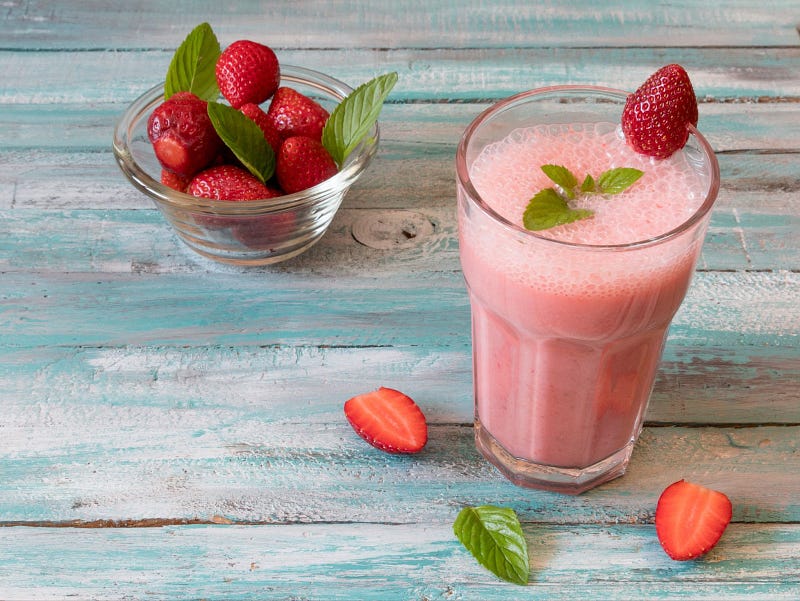Menopause can bring a host of challenging symptoms, from hot flashes and night sweats to vaginal dryness and skin issues.
Many of these symptoms are tied to estrogen deficiency, but there are natural ways to support your estrogen levels and manage menopause more comfortably.
Today, we’ll break down various remedies to help you balance your hormones and feel better naturally.

Balance Estrogen and Progesterone
One key factor in managing menopause symptoms is balancing estrogen and progesterone levels. Often, it’s not just low estrogen that’s the issue but also low progesterone, creating a relative estrogen dominance. This imbalance can exacerbate symptoms.
To help balance these hormones naturally, focus on foods rich in zinc and magnesium. These nutrients are precursors to progesterone. Incorporate nuts, seeds, legumes, whole grains, and leafy greens into your diet.
Fiber is also crucial as it helps to balance hormones by aiding in the elimination of excess estrogen. Foods like chia seeds, quinoa, and vegetables are excellent sources of fiber.
Increase Progesterone with Diet
Boosting progesterone can help mitigate menopausal symptoms.
Certain foods are particularly effective in supporting progesterone production.
For instance, chia seeds, quinoa, and a variety of vegetables are beneficial. Additionally, amino acids such as L-arginine, found in foods like poultry, fish, and dairy, are important for progesterone synthesis.
Vitamin C is another vital nutrient for increasing progesterone levels. Citrus fruits, strawberries, bell peppers, and broccoli are excellent sources of vitamin C.
Studies have shown that women who consume more than 750 mg of vitamin C daily can significantly increase their progesterone levels.
Healthy Eating and Lifestyle Changes
Maintaining a healthy diet and lifestyle is critical for hormone balance.
Reducing sugar intake and managing insulin levels through low-carbohydrate diets can make a significant difference. Insulin dominance can disrupt estrogen balance, so focusing on low-glycemic foods is beneficial.
Incorporate regular exercise into your routine with 10-minute workouts and pelvic floor exercises.
Exercise helps manage weight, improve mood, and enhance overall health, all of which can positively affect hormone levels. Additionally, practicing rotational fasting can help lower insulin levels and support hormone balance.
Liver Health and Detoxification
Supporting liver health is crucial for hormone balance, as the liver helps metabolize and eliminate excess hormones. Eating foods that support liver function can aid in this process. Focus on cruciferous vegetables like broccoli, Brussels sprouts, and cauliflower, which help detoxify the liver.
Methylated B vitamins, found in foods like leafy greens, eggs, and lean meats, are important for liver detoxification and hormone production. Ensure you’re getting enough vitamin D, as it is a precursor to both progesterone and estrogen. Sunlight exposure and foods like fatty fish, eggs, and fortified dairy products can help boost your vitamin D levels.
Estrogen-Boosting Smoothies
An estrogen-boosting smoothie can be a delicious way to support your hormone levels. Combine flax seeds, chia seeds, coconut oil, almonds, and non-GMO soy milk for a nutrient-packed drink. These ingredients provide essential fatty acids, fiber, and phytoestrogens, which help balance hormones.
An example we love is a simple strawberry, omega-3 mix!
Just Add…
- 1 tablespoon flax seeds
- 1 tablespoon chia seeds
- 1 tablespoon coconut oil
- 1/4 cup almonds
- 1 cup non-GMO soy milk
- 1/2 cup Greek yogurt (rich in L-arginine)
- 1 orange, peeled and segmented
- 1/2 cup strawberries
- 1 scoop collagen powder
- 1 tablespoon sesame seeds
Then…
- Add all ingredients to a blender.
- Blend until smooth and creamy.
- Pour into a glass and enjoy immediately.

This smoothie provides essential fatty acids, fiber, phytoestrogens, and a boost of vitamin C to help balance your hormones naturally.
Adding foods rich in L-arginine, such as poultry and dairy, along with vitamin C-rich fruits like oranges and strawberries, can enhance the hormone-boosting effects of your smoothie.
You can also include collagen, which supports overall hormone production, and sesame seeds for their hormone-regulating properties.
Herbal Support
Certain herbs have been shown to support hormone balance and relieve menopausal symptoms. Black cohosh, for example, has been found to reduce menopausal symptoms by 26%. You can incorporate black cohosh into your routine through teas or supplements.
Chasteberry is another powerful herb that supports hormone balance and can help regulate abnormal periods. It can be taken as a delicious tea or supplement and has been a major relief for many women struggling with menopausal symptoms.
Conclusion
Managing menopause naturally involves a holistic approach that includes dietary changes, lifestyle adjustments, and herbal support.
By focusing on balancing estrogen and progesterone levels, supporting liver health, and incorporating hormone-boosting foods and herbs, you can alleviate many menopausal symptoms.
Remember, small, consistent changes can lead to significant improvements in your well-being. Take the next step today, and embrace a natural approach to supporting your estrogen levels and enhancing your quality of life during menopause.







